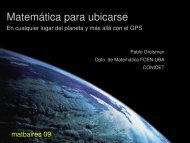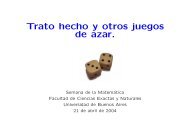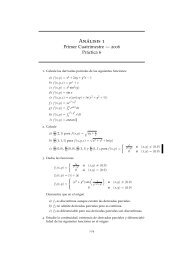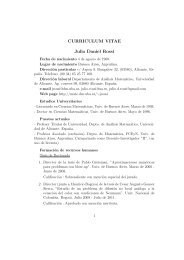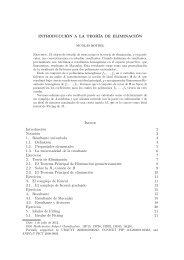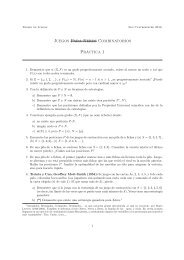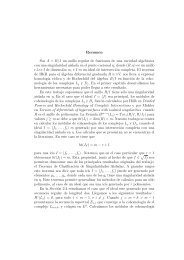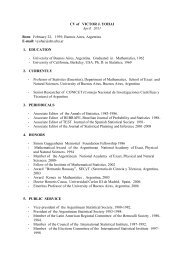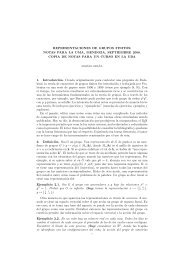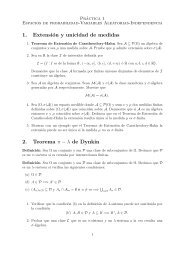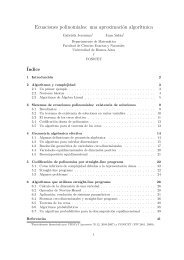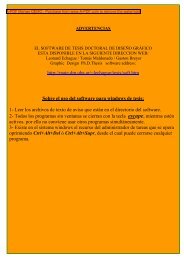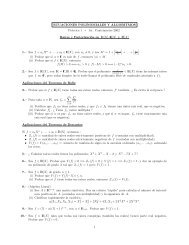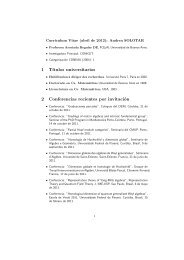WEIERSTRASS'S NON-DIFFERENTIABLE FUNCTION
WEIERSTRASS'S NON-DIFFERENTIABLE FUNCTION
WEIERSTRASS'S NON-DIFFERENTIABLE FUNCTION
Create successful ePaper yourself
Turn your PDF publications into a flip-book with our unique Google optimized e-Paper software.
302 G. H. HARDY: [July<br />
functions of the general forms<br />
(1.131) C (x) = 53 an cos bn x,<br />
(1.132) S (x) = X) an sin bn x,<br />
where the a's and b's are positive, the series J^ a« is convergent, and the b's<br />
increase steadily and with more than a certain rapidity.<br />
A study of the writings to which I have referred, and in particular of the<br />
parts of them which bear directly upon Weierstrass's function, soon shows<br />
that the last word has not yet been said upon the subject. In this paper I<br />
develop a new method for the discussion of this and similar questions, a<br />
method less elementary but considerably more powerful than those adopted<br />
hitherto. It would be easy to apply it in such a manner as to frame very<br />
general conditions for the non-differentiability of the series (1.13). I have<br />
not thought it worth while, however, to do this. The interest of my analysis<br />
lies, I think, in the method itself and in the results which it gives in a few<br />
particularly simple and interesting cases; and its greater power is quite sufficiently<br />
illustrated by its application to Weierstrass's classical example.<br />
1.2. The known results concerning Weierstrass's cosine series are, so far<br />
as I am aware, as follows. Weierstrass gave the condition<br />
3<br />
(1.122) ab>l+^Tr,<br />
and the only direct improvement that I know on this is Bromwich's<br />
(1.21) ab > l+2*-(l -a).<br />
These conditions forbid the existence of a differential coefficient finite or<br />
infinite. For the non-existence of a finite differential coefficient there are<br />
alternative conditions : Dini's<br />
(1.221) ab^l, a&2>l + 37T2,<br />
Lerch's<br />
(1.222) ab^l, ab2>l + ir2,<br />
and finally Bromwich's<br />
(1.223) ab^l, ab2 > 1 -4-1 tt2 ( 1 -a).<br />
All these conditions presuppose that b is an odd integer. But Dini has also<br />
shown that if (1.122) is replaced by<br />
(1.231) ab>l+¡«^-a,



